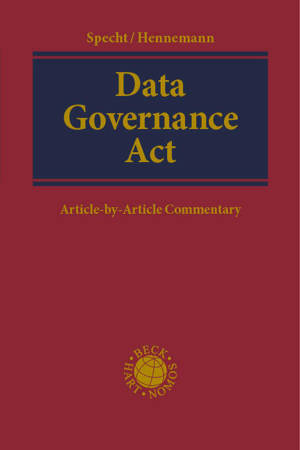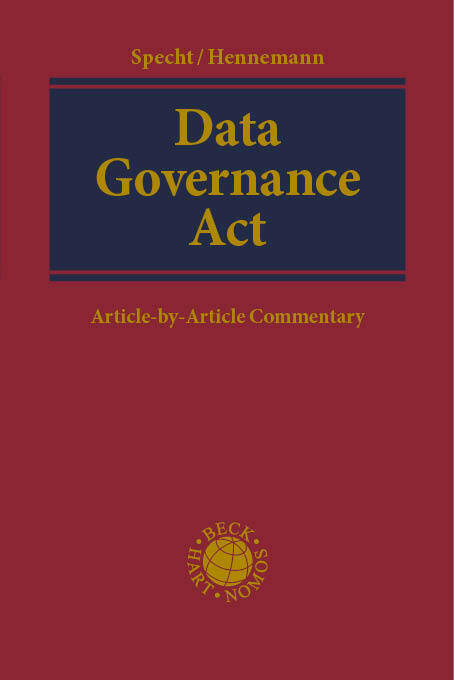
- Afhalen na 1 uur in een winkel met voorraad
- Gratis thuislevering in België vanaf € 30
- Ruim aanbod met 7 miljoen producten
- Afhalen na 1 uur in een winkel met voorraad
- Gratis thuislevering in België vanaf € 30
- Ruim aanbod met 7 miljoen producten
Zoeken
Data Governance Act
Article-by-Article Commentary
€ 192,45
+ 384 punten
Omschrijving
The Data Governance Act (DGA) establishes a new legal framework for the use and sharing of data across all sectors - from industrial to mobility and health data as well as from private to public sector data. The Act aims at strengthening trust in different actors and applies to both personal and non-personal data.The Article-by-Article Commentary This book combines systematic explanatory depth with the necessary practical relevance. The mechanisms, regulations, and instruments introduced by the DGA are explained in a comprehensible manner. In addition, the interaction between the DGA, the General Data Protection Regulation (GDPR) and the future Data Act is explained in detail, enabling data intermediaries, data altruistic organisations, and public bodies to offer their services in compliance with the legal requirements. The book also anticipates potential legal uncertainties and offers interpretive guidance.Main topicsDefinitions of the actors covered Requirements for data use and data sharing Data intermediaries Data altruism European Data Innovation Board Adequacy decisions with regard to the re-use of public sector data Private and public enforcementPotential readersData intermediaries, data altruistic organisations, data protection officers, public authorities, academics, legal practitioners, in-house counsel, companies, trade associations, research institutions, European institutions.About the contributorsThe work is written by Prof. Dr. Louisa Specht, Chair of Civil Law, Information and Data Law at the University of Bonn, and Prof. Dr. Moritz Hennemann, Chair of European and International Information and Data Law at the University of Passau.
Specificaties
Betrokkenen
- Uitgeverij:
Inhoud
- Aantal bladzijden:
- 576
- Taal:
- Engels
- Reeks:
Eigenschappen
- Productcode (EAN):
- 9783848774623
- Uitvoering:
- Hardcover
- Afmetingen:
- 168 mm x 39 mm
- Gewicht:
- 1035 g

Alleen bij Standaard Boekhandel
+ 384 punten op je klantenkaart van Standaard Boekhandel
Beoordelingen
We publiceren alleen reviews die voldoen aan de voorwaarden voor reviews. Bekijk onze voorwaarden voor reviews.






